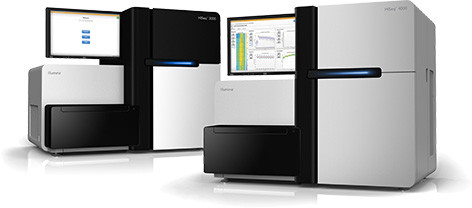
SAN DIEGO — San Diego-based Illumina announced Wednesday that it will take part in a “big data” project that will make genomic data of autism patients and their families available for analysis over the Internet.
The Hartwell Autism Research and Technology Initiative will upload 5,000 genomes involving autism from the National Institute of Mental Health genetics repository to Illumnia BaseSpace, a cloud-computing system powered by Amazon Web Services.
Researchers will be able to access BaseSpace to analyze the data and determine the genomic variation across the samples.
The goal of the Stanford-based Hartwell initiative, called iHART, is to establish the largest shared, open-access repository of bioinformatic data on the condition.
“We believe that this landmark collaboration and open initiative will set the stage for major, clinically useful discoveries in the near future,” said Dr. Dennis Wall of Stanford University, a leading autism researcher.
“The complexity of autism requires big data scientific initiatives like this that are openly accessible and act as a sandbox in which all qualified researchers can play,” Wall said. “Ultimately, we hope our effort will help define the forms of autism and bring sufficient clarity for marker development and much more.”
In addition to providing valuable insight to gain deeper understanding of autism, the collaboration aims to develop a user-friendly interface that will be accessible to researchers as well as individuals outside the research community, including families participating in the study.
The New York Genome Center is also part of the collaboration, which is being funded by the Simons Foundation, according to Illumina.